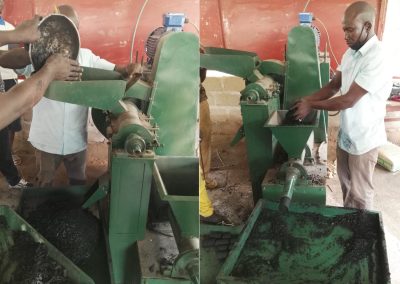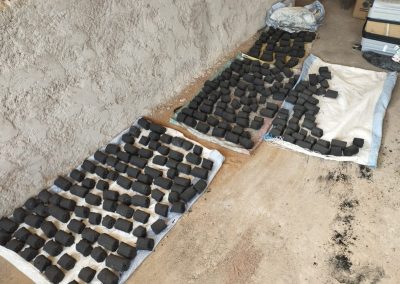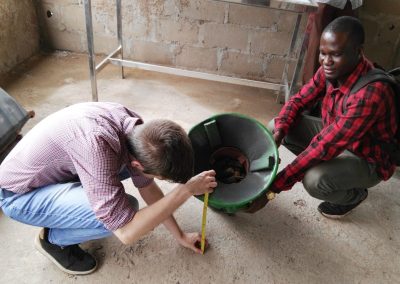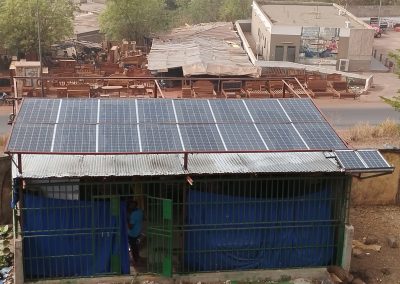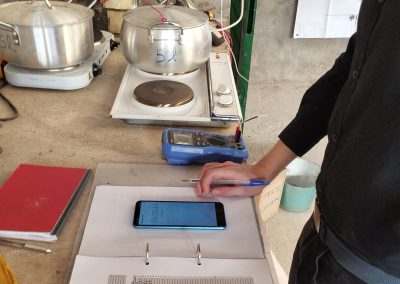Experiments and field visits 2023-2024
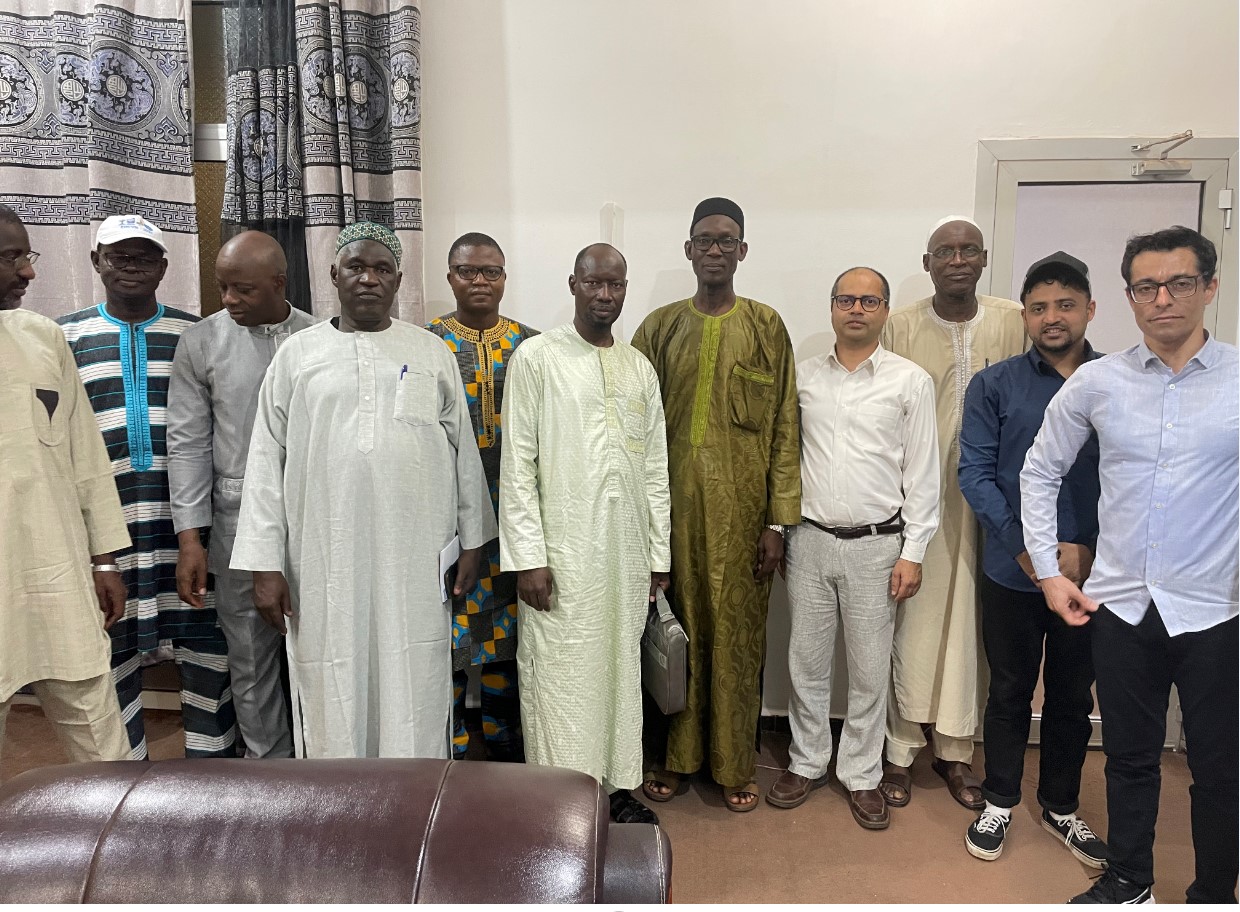
One of the pillars of the C-Cook-Mali project is research work. This research work encompasses planning and performing experiments with pilot plants at IPR/IFRA and USTT-B installations. Throughout the C-Cook-Mali project, the ITT team has conducted several field visits to collaborate with the local teams at these installations.
At the IPR/IFRA in Katibougou (Mali) there is a dedicated laboratory established for clean cooking sector under the C-Cook-Mali project. The laboratory contains eight improved cook stoves (ICS), a biogas stove, a briquetting machine, and measuring equipment for experiments. Moreover, next to the laboratory is a biogas plant that is fed with animal dung and produces digestate, which can be used as fertilizer. Additionally, this biogas plant is connected to the biogas stove. There is also a solar water pump, which provides water for irrigation and biogas mixing.
Some of the experiments performed in the ICS laboratory include the water boiling test of the ICSs, safety test of the ICSs, efficiency tests for the biogas stove, measurement of key parameters of the biogas plant, preparation of briquettes from local plants and measuring properties of the briquettes. Technical tests regarding solar radiation, electricity generation and water flow of the solar water pump have also been conducted. Moreover, a survey of the rural population in the area regarding cooking practices and energy consumption has been carried out.
At the USTT-B installations in Bamako (Mali) is located the solar electric cooking laboratory. It includes 16 PV panels of 260W, an inverter of 5.5 kW and a lithium-ion battery of 10.24 kWh. The system is connected to different electric cookers and it can operate in both AC and DC modes, using energy from the PV modules, the battery, or both simultaneously. Moreover, equipment for performing cooking tests is also available.
In this laboratory, efficiency tests of the electric cooking systems have been performed. The solar radiation on-site has been measured. Also the overall efficiency of the solar electric system has been analysed. Technical tests to measure the autonomy of the PV system and the battery during cooking hours have been conducted too. Additionally, a survey of the urban population of Bamako regarding cooking practices and energy consumption has been carried out.
